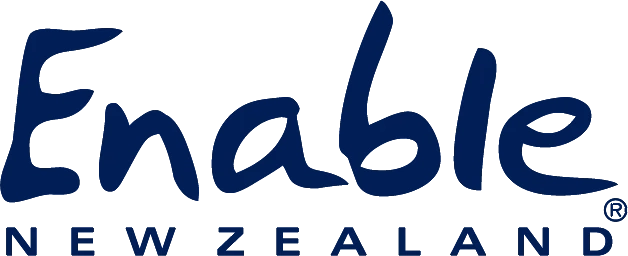Support for children
Whether it's education, health support, accessible places or wellbeing; there's plenty available to support our rangatahi (youth) in New Zealand.
Accessibility isn’t one-size-fits-all and when your child is growing quickly, having a range of resources throughout that journey is essential.
About child disability and accessibility in New Zealand
Your first steps into seeking support might be through your GP (doctor) or through a hospital visit. From there you might be referred to Child Development Services or you may connect with a specific support organisation like Disability Support Services (part of Ministry for Social Development) or ACC.
Child Development Services
This looks different in each hospital but is generally the service under pediatrics which will connect you to specialist doctors, occupational therapists and others who can undertake an assessment on your child to understand their needs. The services are for children 0 to 16 years old and can be accessed by referral from your doctor or contacting your local service through the hospital directly.
Disability Support Services
This Government agency manages disability-focused services as part of the Ministry of Social Development.
Enable New Zealand delivers equipment, housing modifications, vehicle modifications, hearing and spectacle services on behalf of DSS (Disability Support Services). DSS will be who your funding could come through for a needs assessment for your child.
Find out more about DSS on Firstport.
ACC
If your child requires support due to an accident, they may be covered under ACC. Enable New Zealand delivers equipment and housing modifications services on behalf of ACC but there are a number of other supports your child could be eligible for.
Find out more about ACC on Firstport
Assistive Technology (Equipment) process
As you’ll have seen above, there are a number of ways to access funded accessibility equipment. This could include a wheelchair, hoists, walking frames, hearing aids, glasses or protective equipment. In working with CDS, DSS or ACC, you’ll work with an occupational therapist or other specialist to understand your child’s needs.
This specialist (called an assessor) will make a submission to Enable New Zealand with their equipment recommendation. Our Clinical Service Advisory team will review these and make recommendations or provide feedback to your assessor. In some cases it won’t meet the funder guidelines and our team will make suggestions on what current best practices are to ensure you can access some support.
Hearing support
Hearing aids for children in New Zealand are funded through DSS by going to your local hospital.
Find out more about hearing equipment for children
If your child is 16 and over with complex needs, they still may be eligible for DSS funding if they’ve had continous need for hearing aids since they were young. You can find out more about the hearing aid scheme we administer in this criteria document.
Spectacles
Glasses and sometimes contact lenses can be funded through DSS for eligible children.
Find out more about the Children’s spectacle subsidy service
Privately funded
If your child’s needs are not able to be met through Government funding due to them being outside funding parameters, you can choose to self-fund. There are many organisations who offer assistive technology to enable a good life for your child.
Take a look at the Easie Living online store
Education support
The Ministry of Education (MOE) is tasked with supporting the education of New Zealanders equally and to the best of it’s ability. To ensure this is possible, they have programmes to support children with accessibility needs.
The Early Intervention Service aligns with the Enabling Good Lives (EGL) principle ‘Beginning Early’ and provides access to supports like special equipment, therapists, school site modifications, transport and teachers aides.
Education for children with a physical disability or illness | New Zealand Government
While the service provides these supports, MOE encourages you to make a plan with your child’s teacher. This fits with EGL principle ‘Mainstream first’, noting that it can often be a better outcome for your child to access existing supports. Just because your child may be hearing impaired doesn’t mean your teacher isn’t well equipped to provide a lot of support them and just because you access one specialist support doesn’t mean you can’t make the most of mainstream supports too. If you have any questions about this or feel something is missing from this plan, MOE also encourage you to reach out to the MOE learning support team.
Supporting your child if they need extra help with their learning - Ministry of Education
If your child requires additional support due to behavioral concerns, you can access Intensive Wraparound Services. These may often include people, equipment and modification support.
Help for children with behaviour problems | New Zealand Government
Wellbeing support
For children, schools can offer some excellent wellbeing supports but there are plenty of other organisations who specialise particularly in supporting the mental wellbeing of our young people. This includes supports for siblings of disabled children.
Take a look at these mental wellbeing organisations supporting kids and teenagers
Accessible places
More and more playgrounds and other fun places are building accessibility into their daily fabric. Check out the range of accessible place on Firstport, your national disability information and advice website.
